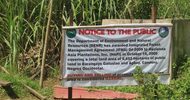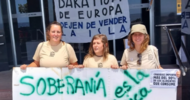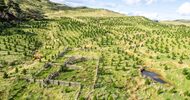Indonesia’s food estate program, billed as improving domestic food availability, has had the opposite effect on farmers recruited into the scheme, a new study shows.
Experts warn that providing companies with an option to dispute the revocation opens up room for corruption, and gives companies time to speed up the exploitation of the land while the revocations remain non-binding.
An area nearly the size of Belgium will be cleared in Indonesia’s Papua province to grow food crops under a government program. A new analysis shows that this conversion alone could result in the release of 616 million metric tons of greenhouse gases — a third of what Indonesia as a whole currently emits in a year.
On January 5, 2022 the Government of Indonesia revoked over 2000 permits of mining and plantation companies, which included 26 oil palm plantation companies in Papua Province and 22 companies in West Papua Province. But reports showed that several companies including Indofood Group plantation are still operating without Land Use Rights.
- Yayasan Pusaka
-
28 January 2022
More than 2,000 mining, plantation and forest-use permits have been revoked by Indonesian government due to non-compliance or because they had been unused, tightening oversight of the nation's natural resources.
Koalisi masyarakat adat yang terancam menjadi korban perusahaan perkebunan kelapa sawit terus menyatakan dukungan terhadap Bupati Sorong Selatan yang mencabut ijin perkebunan kelapa sawit. Dan memandang tindakan perusahaan memperkarakan keputusan Bupati sebagai wujud sikap perusahaan yang tidak menghormati hak-hak Orang Asli Papua.
- Yayasan Pusaka
-
04 January 2022
When the Indonesian government announced ambitious plans to ramp up domestic food production as the pandemic set in last June, officials claimed that it would not lead to “environmental destruction”. An investigation by The Gecko Project and Tempo reveals how the ministry has exploited regulations that were drafted hastily during the pandemic, stripping away environmental safeguards and opening up vast new areas of land for agriculture.
- The Gecko Project
-
14 December 2021
An administrative court in West Papua Province ruled in favour of a district head who had revoked permits allowing more than a dozen palm oil companies to operate in Indigenous forest areas and turn them into plantations.
- Al Jazeera
-
07 December 2021
An analysis of land conflicts involving palm oil companies in Indonesia, the world’s biggest producer of the commodity, shows the country lacks effective mechanisms for addressing these problems.
- Eco-business
-
02 December 2021
A fifth of oil palm plantations in Indonesia, the world’s biggest producer of palm oil, are operating illegally inside forest areas that are off-limits to commercial agricultural activity, a new report from Greenpeace shows.
- Mongabay
-
11 November 2021
The rapid spread of oil palm plantations across Indonesia has spawned over 4,000 land conflicts, and the size of these plantations is doubling every decade. A new study, details the main causes of these conflicts and exposes the limited resources rural Indonesians have to seek resolution and redress for land loss.
Big financial institutions rake in profits bankrolling the destruction of the land, homes and livelihoods of communities who have safeguarded their forests for generations
- Global Witness
-
21 October 2021
















